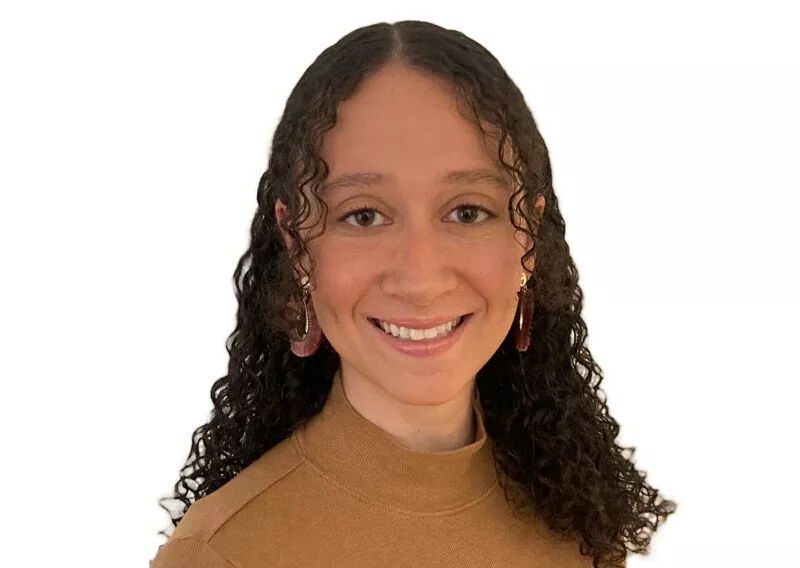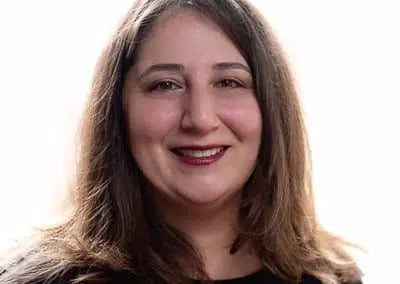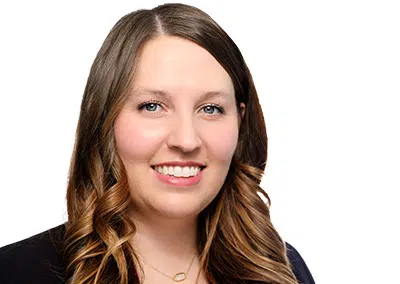Marriage Counseling Questions:
Is Marriage Counseling Covered By Insurance?

Dr. Lisa Marie Bobby is a licensed psychologist, licensed marriage and family therapist, board-certified coach, AAMFT clinical supervisor, host of the Love, Happiness, and Success Podcast and founder of Growing Self.
Takeaways: Wondering if marriage counseling is covered by insurance? The answer is, it depends. There are some situations where your insurance may pay for couples counseling sessions, but it depends on your reasons for seeking couples counseling and whether they qualify as “medically necessary.” Read on to learn about situations where marriage counseling might be covered by health insurance, and some situations where you want to think twice before trying to use your insurance to pay for couples counseling.
- The most important thing you need to know about using health insurance to cover marriage counseling.
- The pros of using insurance to cover couples counseling.
- The risks of using insurance to cover couples counseling.
- If you need marriage counseling, get marriage counseling.
- Can I use my insurance at Growing Self?
Is marriage counseling covered by insurance?
Many couples know they would benefit from professional help (specifically marriage counseling, couples therapy, or relationship coaching), but hesitate to seek it out or commit because they worry about the cost of marriage counseling. Of course, if couples therapy is covered by insurance, then help might be more affordable. Makes sense, right?
So what’s the short answer to the question, “Is marriage counseling covered by insurance?”
Yes, You Can Use Insurance Benefits To Cover “Marriage Counseling” — Sometimes
In some contexts, health insurance does cover therapy sessions, including marriage counseling or couples therapy. But there is much more to this story.
When you decide to use your health insurance specifically for couples therapy, a lot happens behind the scenes. For example, using insurance for couples therapy can make a major difference in the type of therapy you receive, the type of practitioner you work with, and the goals of the work itself. Most importantly, when marriage counseling is covered by insurance, it can have extremely different outcomes in terms of the results for your relationship.
There’s a lot to unpack here, but don’t worry. I’ll explain all of this in-depth so that you can make the very best, most-informed decisions for yourself, your relationship, and your family.
Is Marriage Counseling Covered By Insurance?
Health insurance opens up a lot of doors for people who don’t have a ton of disposable income — and it’s not hard to see why. With insurance, many costly procedures and therapies become far more affordable. After all, we pay a lot for insurance. Let’s use it when we can, right?
Health insurance only pays for “medically necessary treatment” of mental illnesses.
However, insurance does not actually cover “marriage counseling” or “couples therapy.” In the eyes of the healthcare field, neither “marriage counseling” nor “couples therapy” are recognized treatments. Officially, there is “individual therapy,” “family therapy,” and “group therapy.” That’s it.
Informally, we call family therapy “marriage counseling” or “couples counseling” when there are two partners in the room. However, what we think of as “couples counseling” for the purpose of relationship improvement doesn’t formally exist in the behavioral healthcare system.
The simplest way to explain this is that the goal of marriage counseling or couples therapy — improving relationships — is not something that health insurance providers want to pay for.
Why?
Here’s the most important thing to know about using insurance for marriage counseling:
So, when is couples counseling covered under insurance? Health insurance only covers “medically necessary treatment” of mental illnesses.
Health insurance does not pay for you to feel happy, improve your communication, create alignment around goals, get on the same page with finances, recover from an affair, or stop unproductive fighting. Health insurance does not pay for relationship improvement. It only pays for the diagnosis and treatment of mental health conditions.
“But wait a minute,” you might be saying, “We saw a couples counselor who took our insurance once. We weren’t doing ‘treatment.’ So how can that be?”
If you had that experience, the therapist you worked with diagnosed either you or your partner with something and told your insurance company that the therapy you underwent was for the explicit purpose of treating your psychiatric condition. You or your partner were labeled as the “identified patient” and the other was participating in treatment.
If that was not actually the case, or if that fact was never discussed openly with you, your therapist misrepresented the work they did with you in order to get paid. In other words, they committed insurance fraud. That may sound harsh, but it’s the truth.
Allow me to explain.
Let’s Talk.
Schedule a Free Consultation Today.
Insurance for Family Therapy: CPT and ICD-10 Codes
I never understood the ins and outs of using health insurance for therapy until I had the privilege of filling out a CMS-1500 form, which is how we submit claims to insurance companies. These forms require extremely clear and specific types of information, including:
- Who is the patient?
- What is the diagnosis?
- What type of treatment is necessary?
- On which date(s)?
- By which providers?
- At which locations?
That is all they typically care about. (Except that the form must be completed in blue or black ink!) In some situations, insurance company auditors will call requesting more detailed information in order to determine that treatment is *really* medically necessary. In these situations, a therapist is asked to hand over notes documenting what has been discussed in sessions in order to confirm they were addressing symptoms, or sometimes we get asked to provide treatment summaries documenting the continued presence of symptoms (and our plan to resolve them). But this is more common with in-network providers.
But at a bare minimum, therapists need to submit a CMS form to submit claims for you. This requires our communicating about the diagnosis and treatment through CPT codes and ICD-10 codes.
Crash Course on CPT Codes in Therapy
CPT codes for mental health treatment are “numerical codes used primarily to identify medical services and procedures furnished by qualified healthcare professionals (QHPs).”
When you actually look at these codes you can see plainly that, from the perspective of the medical field and the health insurance industry, there is no such thing as “couples therapy” or “marriage counseling.” There is only “individual psychotherapy” (90834), “family therapy with the patient present” (90847), “family therapy without the patient present” (90846), and also “group therapy.” (I don’t do group therapy, so I don’t have that code memorized).
This is the specific, black-and-white reason why if you were to call your insurance company and ask if insurance covers marriage counseling, they’ll say no. It doesn’t exist in their system. However, “medically necessary” family therapy does.
This means that in order for your health insurance to cover “marriage counseling” or “couples therapy,” it would have to be coded as “family therapy with patient present” on the insurance claim form.
Which one of you shall be the patient? Let’s discuss diagnosis codes!
ICD-10 Codes in Therapy
As mentioned before, if you use insurance for therapy, your therapist makes the claim that the treatment they’re providing is for the specific purpose of resolving the psychiatric symptoms of the identified patient — NOT helping you improve your relationship.
On the insurance claim form, either you or your partner needs to be the “identified patient” with the mental illness and an ICD 10 diagnosis code listed.
For example, the code F43.12 is shorthand for “Post-traumatic stress disorder, chronic.” The code F41.1 means “generalized anxiety disorder.”
Unless you have a billable code and an identified patient, essentially saying “this person has this psychiatric condition,” your insurance company will deny your claim.
Insurance-Covered Family Therapy Is Mental Health Treatment
Of course, there are certainly instances where mental-health-focused couples and family therapy are appropriate.
For example, if you or your partner is in recovery for a psychiatric condition such as bipolar disorder, post-traumatic stress disorder, an eating disorder, or a substance use disorder, therapy that focuses on helping the family system support the identified patient’s recovery can be intrinsic to long-term symptom management.
There are also evidence-based forms of couples and family therapy that have been shown by research to be highly effective in reducing symptoms of conditions like post-traumatic stress disorder and depression, among others. High quality-therapy that teaches partners how to manage conditions like these are very valuable.
When a child in a family system is experiencing mental health problems, it is also vital to have the parental system involved in their recovery through family therapy. Family therapy is often a more effective intervention for kids than individual therapy.
Under these circumstances, you certainly can and should use health insurance to pay for couples counseling or family therapy. Remember, we informally call it “couples counseling” or “couples therapy” when it’s a couple being seen together. But on that insurance form, it’s formally documented as “family therapy” because there is not a CPT code for couples counseling.
If you have a diagnosable condition that would benefit from family therapy with your partner present, and you do this type of work with a Growing Self marriage and family therapist, we can help you use your insurance benefits by providing you with super bills to submit to your insurance company.
So, there you have it. That is how health insurance works for family therapy (i.e., “couples therapy” or “marriage counseling.”)
Let’s Talk.
Schedule a Free Consultation Today.
Is Couples Counseling Covered Under Insurance: The Pros and Cons
“Okay, got it,” you might be thinking. “My husband seems withdrawn and a little depressed sometimes. It would definitely be cheaper for us to find a marriage counselor that takes our insurance and I’m cool with calling this ‘family therapy’ if that’s what we need to do. Whatever it takes for us to get help, because it’s past time to get marriage counseling — but I still worry about the cost. We’ve been fighting, I’m feeling angry and disconnected, and we might just call it quits in our relationship if we don’t get help soon.”
I can completely understand this pragmatic perspective. I would be thinking the same thing if I were in your shoes and didn’t know what I know from my experience of working in this field for decades. Before you make this decision, you should know that there are many risks involved in using insurance to cover marriage counseling, above and beyond the cost.
First, let’s talk about the advantages and the specific situations in which using insurance for marriage counseling is probably the best call.
Advantages of Using Insurance for Marriage Counseling
Pros of Using Insurance For Marriage Counseling: Specialized Behavioral Healthcare
If you or your partner are dealing with a serious mental health issue that requires longer-term, specialized behavioral healthcare to resolve, using health insurance for marriage counseling is probably your best option. Things like post-traumatic stress disorder, generalized anxiety disorder, obsessive compulsive disorder, major depressive disorder, or substance use disorders are serious conditions that can require intensive treatment.
Recovery from conditions like these often requires a variety of therapeutic interventions: individual therapy, family therapy with your partner, group therapy, medication management, etc. This gets very expensive very quickly, and unless you’re very wealthy, most people cannot afford to do everything they need to do to get better without tapping into health insurance. Choosing just one treatment, like only seeing an individual therapist or only seeing a psychiatrist for medication, is not always sufficient.
People who are worried about how they’re going to pay for therapy may overlook the healing power of family therapy as a treatment for psychiatric conditions, prioritizing individual therapy instead. But imagine a person who is in treatment for post-taumatic stress disorder related to childhood sexual abuse. You can bet that their symptoms are going to be front and center when it comes to sexual intimacy with their partner. Being able to work through that together, with a well-qualified family therapist who has a nuanced understanding of the impact of trauma, is going to make a huge difference in their symptom resolution.
Using your health insurance benefits can give you access to highly trained professionals who specialize in the diagnosis and treatment of serious conditions, and you’ll be able to afford to engage in treatment as deeply (and as often) as you need.
If you are in need of this type of treatment and you don’t have private health insurance that covers behavioral healthcare, you should find out if you qualify for state-sponsored healthcare such as Medicaid or Medicare. You can contact these offices directly (through your state government), or you can reach out to a local community mental health center to connect with a caseworker who can help you apply for benefits. A caseworker can also help you tap into free or low cost mental health services in your area.
Advantages of Using Insurance For Marriage Counseling: The Cost (Maybe)
Outside of a legitimate mental health treatment situation, people also use their insurance to pay for marriage counseling for relationship improvement through the loophole we discussed earlier in this article. Theoretically, using insurance for this type of marriage counseling can make it cheaper because, once you’ve met your deductible, you may only have to pay the cost of your copay every time you see your marriage counselor.
By the time you factor in deductibles, the actual cost of marriage counseling is often no different — whether you go through your insurance or not.
The financial caveat here is that for many health insurance plans, you might have a different deductible for mental health treatment than regular healthcare. Often, this difference is to the tune of several thousands of dollars. If you use your insurance for marriage counseling, you need to pay that deductible out of pocket before your coverage kicks in and your sessions are actually paid for.
This means that in many cases with high deductibles, you could complete an entire, successful course of effective couples counseling with a true relationship expert for less than what you’d pay out of pocket. Many people are surprised to learn how little marriage counseling costs, and how affordable it really is.
By the time you factor in deductibles, the financial cost of marriage counseling is often no different, whether you go through your insurance or not. However, there can be huge differences in the marriage counseling process itself which you might wind up paying for too, in the end.
Pro Tip: Put a call in to your insurance company and find out what the deductible for mental health services is on your policy. If it has three zeros on the end, know that it’s a wash whether or not you use your insurance, from a financial perspective.
Even if you have met your deductible and insurance will cover marriage counseling minus the copay, however, there are other very real risks that come with this strategy if your goal is relationship improvement.
Let’s Talk.
Schedule a Free Consultation Today.
Using Insurance for Marriage Counseling: The Risks
If you are looking for relationship improvement rather than mental health treatment, you might be able to use your insurance, assuming you’ve met your behavioral health deductible, and assuming you can find a practitioner willing to submit claims indicating they’re providing treatment for a diagnosable condition.
However, if your goal is relationship improvement, affair recovery, to rebuild trust, or to improve communication, there are several very real risks you may face when trying to find a marriage counselor who takes insurance. Risks that may be highly detrimental to your relationship.
Risk 1: You’ll Be Working with a Therapist, Not a Marriage Counselor
Most marriage and family therapists (myself included) don’t typically work from the “medical model.” Our main focus is not “medically necessary” treatment. It’s helping people heal and improve their relationships. As such, we are not usually paneled by insurance companies. Though they can overlap to a degree, “treatment” and “relationship improvement” are very different things to a marriage counselor, and there are significant differences in the way we conduct our work.
Most of my clients are seeking relationship improvement rather than “medically necessary treatment,” so insurance does not usually come into play. Of course, when I am working with a couple where one partner has a legitimate mental health diagnosis that our work together is seeking to resolve, I am happy to help my clients use their insurance benefits by submitting electronic claims for them (as an out-of-network provider.)
However, most of my clients are not seeking me out for behavioral healthcare. They’re seeking my help in improving their relationship. Nobody is unwell. They’re just unhappy with each other.
I, like most marriage and family therapists, specialize in helping couples reconnect with their positive feelings toward each other, improve their communication, and strengthen their relationship through evidence-based forms of couples counseling and relationship coaching. Since these goals don’t technically constitute “medically necessary treatment,” insurance is usually not relevant.
Practitioners who do work with insurance companies are often clinical psychologists, licensed clinical therapists, or licensed clinical social workers who practice mental health treatment. They are not licensed marriage and family therapists who specialize in couples counseling for the purpose of increased connection, communication, and relationship satisfaction.
This leads us to the second big risk of trying to get insurance to pay for marriage counseling…
Risk 2: Most Therapists Aren’t Relationship Specialists
Even outside of the medical model/health insurance arena, it is hard to find a genuinely good marriage counselor.
The majority of therapists who offer “couples counseling” do not have extensive specialized training or experience in marriage and family therapy. They have training in individual therapy.
“When all you have is a hammer, everything looks like a nail.”
Professionals trained exclusively in individual therapy are often likely to treat every situation like an individual therapy session. Even with two people in their room, they often simply perform individual therapy and call it “marriage counseling.” When all you have is a hammer, everything looks like a nail. Obviously, this has serious consequences for the outcomes of the work.
If we look at a pool of therapists paneled with insurance companies, this is even more pronounced. Again, therapists who take insurance are, by definition, mental health treatment providers— not relationship experts.
Generally, only licensed marriage and family therapists have specialized training in evidence-based couples and family therapy and have devoted their practice to becoming skilled in it. They are relationship experts. (I’ve provided much, much more on this subject with this article on how to find a good marriage counselor.)
Going to see a basic therapist when you’re in a relationship crisis is kind of like going to see a family doctor when you have a cancer diagnosis. Have they had a class about cancer? Sure. Are they an oncologist who specializes in cancer treatment? No. Should you be worried about the outcome? Yes.
Couples counseling is a highly specialized practice that requires extensive education, training, and years of supervised experience to master. Garden-variety therapists won’t have the same education, training, and experience. Only licensed marriage and family therapists do.
Unfortunately, many couples who insist on using their in-network benefits settle for any “marriage counselor” who is able to see them. They don’t know enough about the differences in education, training, and credentials of different mental health professionals to know that the LCSW (licensed clinical social worker), psychologist, or licensed mental health counselor may have very little (or no) specific training or experience in evidence-based couples counseling. They’re therapists trained to treat individuals with psychiatric diagnoses.
Quite simply, therapists are not relationship specialists and…
Risk 3: Mental Health Treatment Is Not Couples Counseling
Couples who go through their insurance for couples counseling are often not actually getting the “couples counseling” they’re hoping for. Mental health treatment is not the same thing as relationship improvement.
Unless your therapist is willing to lie to the insurance company, any therapy you receive with your partner that is covered by insurance is going to be “treatment” for one of you. As stated earlier in this article, the basic premise and focus of any insurance-covered sessions must be “treating the partner with the problem.”
This pathology-focused approach is rarely helpful for two healthy, high functioning people who want to improve their relationship. Do you want to be labeled as the “partner with the problem” in your couples sessions? I wouldn’t.
When one partner in marriage counseling has an official diagnosis for something like depression or anxiety, there can be the implication that they are the one causing the problems in the relationship. In stark contrast, a good marriage and family therapist sees that partners are having emotional reactions to each other not because of either partners’ individual problems, but because of the problems in the relationship.
However, if both partners (and the therapist) believe the relationship issues are due to one person’s “issues,” it may impair their ability to make successful changes in the relationship system, particularly if couples counseling sessions tend to focus on the reactions of the one “disordered” partner and not the other “healthy” partner.
A good marriage and family therapist with a strong background in systems theory would understand that both partners are always reacting to each other. For this reason, they would seek to create change in the relationship itself — not in either individual.
Relational work that focuses on one partner’s “issues” is a warning sign that the therapist trying to provide couples counseling is not an expert marriage and family therapist, but rather an individually-trained therapist who doesn’t know how else to work.
Let’s Talk.
Schedule a Free Consultation Today.
Risk 4: Your Relationship Is On the Line
Let’s visualize Donna, a licensed clinical social worker, in her therapy office.
[Cue some tension filled orchestral music for our mental soundtrack].
Twenty years ago, in Donna’s eighteen-month master’s program in social work, Donna had one family therapy class. Since then, she has spent most of her professional career working in a community mental health center providing psychotherapy intended to stabilize patients with severe and persistent mental illnesses. Donna’s other main focus has been helping children in foster care transition back into the care of their parents.
For these purposes, Donna has occasionally worked with parents and incorporated the family members or partners of her adult patients in sessions. As a result, she perceives herself as knowledgeable regarding family therapy.
After years of working with such a high-need population, Donna started to feel burned out. She decided to quit her job and open a private practice. She became paneled by Acme health insurance, where all of her client referrals come from. Now, she mostly sees individual adults for mental health issues — but will also accept couples, families, and kids as clients. Donna stays busy!
On the day our story begins, Donna meets Erica and Mark. The couple is thrilled that they’ve finally found a “marriage counselor” who takes their insurance. They did not know what marriage counseling questions to ask in order to make sure they were working with a legitimately-qualified marriage counselor, assuming they’d be in good hands regardless. They handed over their insurance card and settled into the matching swivel chairs in Donna’s office to tell their story.
Erica and Mark have been fighting a lot. Since the birth of their first baby, Erica has been feeling resentful and hurt. She wants more emotional connection and validation from Mark, but doesn’t know how to communicate these longings in a vulnerable, direct way, instead resorting to codependent, controlling behavior, which kicks off power struggles between them. She doesn’t know how to say, “I need you.” She’s not even fully aware of her unspoken relationship needs.
So Erica stews, feels wronged, and often gets angry with Mark for the way he communicates. She finds fault in everything he’s doing — with the kids, around the house, etc. She’s fixated on all of the things she feels Mark needs to change and has zero awareness of how she’s contributing to the codependent relationship dynamic between them.
On his side, Mark doesn’t really want marriage counseling. He has been becoming increasingly withdrawn and avoidant, which is contributing to a damaging pursuer-distancer pattern in their relationship. He feels like whatever he does is probably going to be the wrong thing anyway, so why do anything at all? He’s tried to make amends with Erica, but they don’t share the same apology languages. The couple has been spiraling down into a negative communication cycle for a while. Like many other couples, they didn’t get help when this first started happening. They told themselves that it wasn’t that bad (because it wasn’t — yet). Predictably, the negative relational cycle intensified and worsened over the years, and now they are at an impasse.
In the absence of emotional connection in her relationship, Erica has developed a crush on James, her coworker, and is feeling ambivalent about her marriage.
Mark doesn’t know about Erica’s emotional infatuation with James (yet), but he is unhappy, too. Erica and Mark rarely have sex. It feels like they’re just roommates. Mark is feeling lonely in the relationship and feels like his wife hates him, which makes it so hard for him to reach out to her in efforts to connect.
This marriage is on thin ice. Erica and Mark are both making many relationship mistakes, but have no idea. Like many couples first seeking professional relationship help, they both perceive the other person to be at fault. The outcome of their couples therapy is going to have a significant impact on the rest of their lives.
Erica and Mark are at a crossroads with three paths ahead:
Path number one is growing together, gaining understanding, empathy, and connection that transforms their relationship and launches a new chapter in their marriage.
Path number two is no change, just months or years spent enduring an increasingly hostile and unhappy marriage for both of them, until one of them eventually calls it quits.
Path number three is separation, the sickeningly expensive horror show of divorce, trying to help their kids through the anxiety and grief of their divorce, and at least fifteen more years of co-parenting, navigating each other’s new romantic relationships, and blending families with new partners, without the benefit of having learned what to do differently in their next relationship in order to avoid the same outcome in the future.
Erica and Mark have no idea what to expect from marriage counseling. They just tell Donna everything and trust that she can help them find their way through.
Donna is listening, mainly thinking about who she’s going to diagnose and with what. She is forming a conceptualization of what’s going on with this couple through the lens of her professional experience as a social worker and mental health treatment provider. Mark’s presentation is the most obviously symptomatic of the two, in her eyes.
Donna asks Mark some more questions about his “symptoms,” and learns that, yes, he feels sad, has been more withdrawn lately, sometimes feels irritable, has been feeling a little hopeless about the relationship, and doesn’t enjoy some of the things he used to (specifically, hanging out with Erica).
“Perfect,” thinks Donna, as she writes “F32.1 — major depressive disorder, single episode, moderate,” and “CPT Code 90837 — Family psychotherapy (conjoint psychotherapy) (with patient present), 50 minutes).” From Donna’s perspective, these are the most important notes she’ll make. After all, these are the notes she’ll need to file her claim for insurance after Erica and Mark leave her office. She finishes her notes and says brightly to this unsuspecting couple, “Let’s get to work!”
For the next several months, Erica and Mark obligingly show up for marriage counseling every week. They often talk about Mark’s depression and how fed up Erica is with him. They rehash their fights and tell the “marriage counselor” all the things they don’t like about each other. As you can imagine, this does not help them improve their relationship. It actually seems to be making things worse between them.
These sessions reinforce Erica’s internal narrative that Mark is an emotionally stunted person not capable of emotional intimacy and that she’d be so much happier with someone like James, the guy she works with — whom she barely knows, except through fun instant messaging banter.
Mark is feeling increasingly bad about himself and his life. He feels like a broken, messed-up person. He is becoming more withdrawn and more convinced that he can never be the person Erica wants him to be. And increasingly convinced that she’s just an angry witch anyway. Ironically, in accepting the narrative that this spiraling marriage is due to his deep and abiding issues, he is beginning to become legitimately depressed.
Donna can sense that this couple is stuck, but doesn’t know why. (She wouldn’t; she doesn’t have training or experience with evidence-based forms of couples counseling the way an MFT would). She starts providing individual therapy for Mark in addition to their couples sessions, with no awareness that this type of dual-therapy relationship is highly unethical from a qualified marriage counselor’s perspective. She tells Erica and Mark to spend more time together, try date nights, and talk about how they feel instead of blaming the other by using their “I statements.” They try. Over a tense dinner out, spent mostly in frosty, sullen silence, Erica hisses, “I hate you.”
Erica, Mark, and Donna continue their work together for the twelve weeks that their insurance company will cover without much movement. The couple doesn’t even come to their last session; what’s the point? The experience has already told them what they needed to know: There is no hope for their marriage.
From Erica and Mark’s perspective, they have now officially tried “everything.” Marriage counseling didn’t work. Erica starts calling family law attorneys and shares the news with James, who invites her out for an after-work drink. Mark calls his doctor to see about getting a prescription for an antidepressant and starts looking for apartments to rent.
This type of sad scenario happens all the time in marriage counseling offices, and is much more likely to happen when couples attempt to use insurance to cover marriage counseling.
If you’re feeling depressed now, too, here are some more inspiring and hopeful stories about how marriage counseling works, and what to expect from good couples counseling.
As you read, I invite you to think about what Mark and Erica may have been able to do with the right support.
If You Need Marriage Counseling, Get Marriage Counseling
Too often, couples on the brink have one shot at fixing their relationship. When they entrust the future of their relationship and their family to… whoever… they may not have the life-changing, positive, productive outcome they hope for.
The kind of marriage counseling or couples therapy that would have saved Erica and Mark’s relationship is not covered by insurance.
The tragic irony is that, when couples don’t enlist the support of the best expert marriage counselor they can find because they are concerned about the expense, they may be faced with the severe and devastating financial consequences of divorce — the divorce that neither of them wants but seems like the only solution to the relationship problems they never got expert help in resolving. Paying someone to help them save their relationship felt “too expensive.”
Instead, they hemorrhage shocking amounts of money, many tens of thousands of dollars more than they ever would have paid for good marriage counseling, for help in dismantling their shared life.
Pro Tip: Don’t Try to Use Insurance for Marriage Counseling when Your Goals Is Relationship Improvement
For all the reasons discussed above, if your goal is to improve your relationship, you will usually have a better outcome if you don’t go through your insurance company.
Particularly if your relationship is really in trouble and this is your one shot at fixing it, don’t mess around. As they say, “You get what you pay for.” If your family and your future is potentially on the line, just get the best help possible and try not to focus on saving every penny.
Let’s Talk.
Schedule a Free Consultation Today.
Is Marriage Counseling Covered by Insurance at Growing Self?
Here at Growing Self, our practitioners who work with couples are legitimate relationship specialists. The marriage counselors on our team are licensed as marriage and family therapists, or marriage and family therapist candidates. This means they have much more education, training, and experience specifically in helping couples than other practitioners.
On top of that, all of the marriage counselors on our team practice positive, evidence-based forms of couples therapy and relationship coaching that are action-oriented and focused on making real and lasting change. Our marriage counseling works: We help couples improve communication, increase connection, feel love and respect for each other, and make positive changes in their sexual intimacy, parenting approaches, and practical aspects of their partnerships.
We are also committed to making life-changing couples counseling and relationship coaching affordable and accessible, without necessitating insurance to pay for it. If you are seeking the type of “relationship growth experience” that we specialize in, we have many ways of making this incredibly meaningful and important work affordable for you.
We Can Help You Get Marriage Counseling Covered by Insurance
If you or your partner have a mental health condition that is going to be the focus of your work in family therapy, we can absolutely help you use your insurance benefits to cover your work with us. You will need to work with a therapist who is licensed to provide behavioral healthcare in your state of residence. Your therapist will provide a diagnosis and develop a treatment plan focused on symptom reduction for the identified patient, and create documentation with the diagnosis and treatment codes to send to your insurance company.
Not sure about your out-of-network behavioral health benefits? You might be surprised by how generous they are. Just call the number on the back of your card to determine what you’re eligible for and how much you can expect to be reimbursed after you’ve met your deductible.
We Accept Flexible Healthcare Spending Account Cards
In the meantime, you can use your Flexible Healthcare Spending Account card or personal credit or debit card to pay for your sessions. You’ll just add this payment method to your account and that’s the card that will be charged for your sessions.
Flexibility and Confidentiality
The main advantage to being out-of-network providers rather than in-network providers (contracted to provide mental health services under the control of an insurance company) is that it affords more flexibility and privacy.
While in-network providers are often beholden to a managed healthcare system that limits sessions and seeks lots of (often personal) information to make sure you really need behavioral healthcare, that doesn’t happen with us. There are no limits on the number of sessions you can have with us and we don’t have to provide any detailed information about your sessions (above and beyond the diagnosis being treated).
Productive Strategies = Availability
Our system also helps us be more available. Therapists who are insurance-paneled often have throngs of clients seeking treatment for significant mental health issues that take a long time to treat. Additionally, they’re often in no hurry since they’re not on the hook for the bill. As such, their practices are often full.
In contrast, our relationship experts specialize in helping motivated couples improve their relationships. Because we use effective, productive, evidence-based marriage counseling strategies, the average length of marriage counseling is fairly short-term.
Couples who work with Growing Self get what they need and “graduate” from the marriage counseling or relationship coaching process, meaning there is a vibrant flow of clients moving forward — and spaces opening up for you, too.
Our System: Effective and Affordable Marriage Counseling
If, after reading through all of this, you are coming to the conclusion that trying to have marriage counseling or online marriage counseling covered by insurance is not a good idea for you, I’d like you to know that I respect your wisdom. I also want you to know that it’s going to be okay, from a financial perspective. You can do this.
We Invest in Growth
Health insurance doesn’t cover a lot of things that are worth investing in, like your education, your gym membership, your professional development, or your self-care practice. Of course, these things are still worth doing. So is relationship growth work.
Effective Marriage Counseling Is Affordable
You will be pleased to know that expert marriage counseling and discernment counseling with us can be very affordable. Many of the marriage counselors on our team offer sliding scale rates that will be in line with your income.
More importantly, we provide genuinely effective, competent couples counseling and relationship coaching that’s all about helping you create real and lasting change in your relationship as expediently as possible. If you’re looking to get results, you are in the right place.
This Is Important
The value of this type of work and the impact it can have on the trajectory of your marriage, your family, and your life is truly priceless. In fact, getting effective help for your relationship might be one of the most important things you ever do.
One last pro tip from a grizzled Gen-X marriage counselor who’s seen a lot:
Pro Tip: Remember that money is not the same thing as value. Many of the steepest “costs” we pay in life are not measurable in dollars.
I hope that this article helped you get clear about what it is that you want to get out of marriage counseling, couples therapy, or relationship coaching, and that you are now better educated about the pros and cons of trying to use insurance to pay for it.
Sincerely,
Meet a Few of Our Marriage & Family Therapists
Marriage Counseling Questions | Couples Therapy Questions
If you’re considering getting involved in marriage counseling, couples therapy, or relationship coaching you probably have questions! Get your marriage counseling questions answered, right here.
Relationship Advice
Our relationship experts have tons of free, helpful relationship advice on numerous topics to support you both on your journey of growth together. View our relationship advice.
How Healthy Is Your Relationship?
Take our free relationship quiz to discover your strengths and growth opportunities, and get expert recommendations.
When To Get Marriage Counseling?
Was that just a yucky fight? Or is your relationship really in trouble? Here’s how to tell when to get marriage counseling.
What To Expect From Marriage Counseling
Learn what to expect from marriage counseling, from your first free consultation to the triumphant “graduation” from couples therapy.
Relationship Coaching vs. Couples Therapy
What’s the difference between relationship coaching vs couples therapy? Learn about both approaches, and which is right for you.
How to Find a Marriage Counselor
Not all marriage counselors are the same. Getting involved with a bad one can be a disaster. Here’s how to find a good marriage counselor…
Pre Marriage Counseling
Couples counseling before marriage is not the same thing as premarital counseling. Many couples need to grow together before they can move forward.
How Long Does Marriage Counseling Take?
You shouldn’t be in marriage counseling for years. Learn the average length of marriage counseling, depending on your situation, and your relationship goals.
How Marriage Counseling Works
Marriage counseling works, but how? Learn how marriage counseling works, and how the process can help you grow, together.
Does Couples Therapy Work?
Couples who successfully work through rough patches come out stronger than ever before. If you’re wondering, “Does couples therapy work?” read this article for the inside scoop.
Can We Do Marriage Counseling Online?
Online marriage counseling can be incredibly convenient and effective — but not always. Learn when online marriage counseling is the best bet, and when it’s a bad idea…
Can You Do Long-Distance Couples Therapy?
Yes, we provide long-distance couples counseling from all over the world through secure, easy, three-way online video.
Does Insurance Cover Marriage Counseling?
Insurance can pay for marriage counseling (aka, family therapy), but only sometimes. Learn when insurance covers marriage counseling, and when it won’t.
How Much is Marriage Counseling?
Getting expert help for your marriage can be the best, most life-changing decision you ever make. How much do couples therapy and marriage counseling cost? Get all the details, here.
Gift Relationship Help
If you have a loved one who is struggling in their relationship, you can help them get help by “gifting” couples counseling or coaching. Here’s how…
Discernment Counseling For Couples
Before marriage counseling can work, both partners need to want it to work. Discernment counseling helps you resolve ambivalence, and get clarity.
Why Evidence-Based Therapy Matters
Marriage counseling can be a huge waste of time if your counselor doesn’t practice evidence-based approaches to marriage counseling. Here’s why…
Online Couples Therapy
We offer Denver couples therapy and Denver marriage counseling as well as online couples therapy. Learn about our online couples therapy services.
Our Relationship Services
We offer premarital counseling, sex therapy, perinatal counseling, parent coaching, affair recovery, blended family counseling, financial therapy for couples, and more. Learn about all our couples counseling services.
Meet our Relationship Experts
Growing Self relationship experts are marriage and family therapists with specialized training and experience in effective, evidence-based approaches to help couples grow, together. Meet our team of relationship experts…
The Best Marriage Counseling
Curious to hear what others have to say about their experience with “the best marriage counselor?” Read their stories…
Free Resources, For You.
Our experts are incredibly generous and have put together an entire library of free resources and actionable advice to support you on your quest for Love, Happiness, and Success. View our blog + podcast.
More Questions? Let’s Talk.
We’re available by phone, email, and chat, and happy to answer any of your questions personally. Get in touch, anytime.
Start Couples Counseling or Coaching
Ready to begin marriage counseling, couples therapy, or relationship coaching with Growing Self? Start by scheduling a free consultation meeting with the expert of your choice.





















